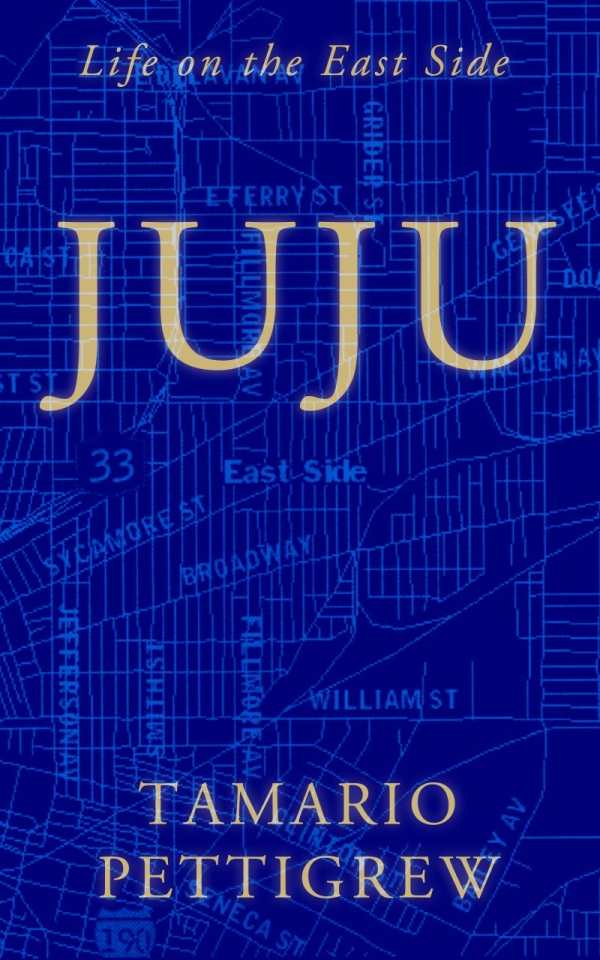JuJu
Life on the East Side
JuJu is a harrowing and hopeful novel, and Pettigrew’s writing is diamond sharp.
A neighborhood in Buffalo endures the 1980s crack epidemic in Tamario Pettigrew’s JuJu, a compelling young adult novel with adult interest.
Teenage JuJu has three older brothers and three younger sisters. When his mother loses one of her three jobs, the family’s choices are limited: they can either return to the neighborhood they left, or they can go on welfare. They move into a dilapidated house in the worst part of Buffalo’s East Side.
JuJu narrates, capturing changes within his family, the neighborhood, and himself. His voice is mesmerizing, with its own cadence and slang. His narration features keen observance and gentle formalities. He expresses dread of what lies ahead and sadness at leaving better schools behind him.
Understanding that survival depends on numbers, JuJu befriends Ashley, an entrepreneurial sociopath who heads a small crew. Ashley’s sister Naomi is lovely, responsible, and unattainable—the embodiment of all that JuJu longs for.
Other characters are established through quick, sharp dialogue and details that illustrate the fractures of their neighborhood lives. Boo, JuJu’s favorite sister, never quite gets the medical care that she needs, and she spends days in bed reading. JuJu’s mother tries to avoid welfare but is defeated by her lack of income and a scheming boyfriend.
JuJu, Ashley, and their crew fall into a pattern of roaming, shoplifting, and playing video games at the laundromat. Their rambles result in a broad panorama of Buffalo life, where houses are missing their shingles and lawns are weed patches. There’s an edge-of-the-world feeling to the text that makes it riveting reading, even when JuJu and his friends aren’t doing much. Balanced and even, the focus trades between JuJu’s time outside and his time at home with his family, where he is often required to guard the house and his young sisters.
JuJu finds escape in the books that Boo lends him and begins writing a journal. The first trickle of crack into the neighborhood happens almost without being noticed: it’s something the adults do, though soon it’s also the center of a business run by their children. The neighborhood changes, and JuJu faces pressure to jump in for a share of the rewards.
As bullets become a regular sound, and young men disappear into graves or prison, the story’s pressure builds to an almost unbearable peak. JuJu knows where that road leads, but struggles: the money would be a ticket out. An unexpected and bittersweet resolution resolves the character’s fates.
JuJu is a harrowing and hopeful novel, and Pettigrew’s writing is diamond sharp.
Reviewed by
Susan Waggoner
Disclosure: This article is not an endorsement, but a review. The publisher of this book provided free copies of the book and paid a small fee to have their book reviewed by a professional reviewer. Foreword Reviews and Clarion Reviews make no guarantee that the publisher will receive a positive review. Foreword Magazine, Inc. is disclosing this in accordance with the Federal Trade Commission’s 16 CFR, Part 255.

